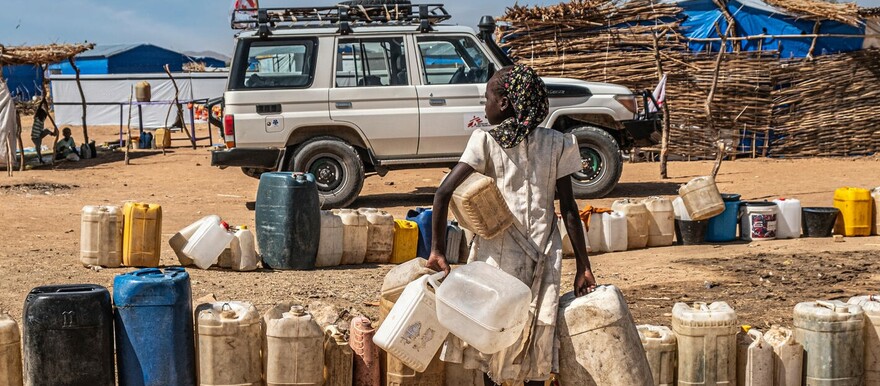Médecins Sans Frontières/Doctors Without Borders (MSF) has issued a warning about the rapid spread of Hepatitis E in refugee camps in eastern Chad. These camps providing shelter to over 550,000 Sudanese refugees.
Poor sanitation and a severe shortage of clean water in the scattered camps across Chad’s Ouaddai province are exacerbating the spread of Hepatitis E.
Erneau Mondesir, MSF’s medical coordinator in Adre, expresses deep concern: “One year since the outbreak of war in Sudan, the situation for those seeking refuge in Chad remains dire. This not only poses a health risk to the refugees but also to the host communities.”
Hepatitis E is a highly contagious viral infection primarily transmitted through contaminated water. It presents a severe threat in crowded and unsanitary environments, often proving fatal. The infection leads to liver inflammation and is especially dangerous for pregnant women and individuals with chronic illnesses like diabetes.
MSF teams operating in Adré, Aboutengue, Metché, and Al-Acha camps said they have observed a significant increase in Hepatitis E cases directly linked to poor sanitation and limited access to clean water. Shockingly, MSF has documented 954 cases of Hepatitis E among the refugees, including 11 pregnant women, with four fatalities.
The majority of cases (469) have been reported in Adré camp, where 122,000 individuals await relocation to more permanent refugee camps. Additionally, MSF teams have recorded 292 cases in Aboutengue, 132 in Metche, and 41 in Al-Acha camps.
In Adré camp, there is only one latrine for every 677 people, while in Metché camp, the ratio is one latrine for every 225 people. “The situation in all camps is dire,” emphasized Mondesir. “Without prompt action to enhance sanitation infrastructure and improve access to clean water, we risk witnessing a surge in preventable illnesses and unnecessary loss of life.”
Mondesir elaborated, “MSF teams are currently treating the direct consequences of poor sanitation and assisting Hepatitis E patients in Adre, Aboutengue, Metche, and Al Acha camps. So far, we have recorded 755 cases of Hepatitis E, including six pregnant women. Among these cases, 44% are females and 56% are males.”
Currently, MSF is responsible for providing over 70% of the drinking water available in Adré, Aboutengue, Metché, and Al-Acha camps. However, individuals are receiving only 11 litres of clean water per day, significantly below the emergency recommendation of 20 litres per person per day.
As the dry season approaches, typically lasting from April to May, the demand for water will increase due to high temperatures, while the available aquifer will diminish in size.
“Despite our relentless efforts, the humanitarian response in eastern Chad has been hindered by insufficient funding for organizations on the ground, leading to critical gaps in the provision of food, water, and sanitation,” lamented Mondesir.
In response to the escalating Hepatitis E cases, MSF says it is intensifying health promotion activities, focusing particularly on pregnant women and new mothers, to raise awareness of preventive measures against the disease and halt its further spread.




